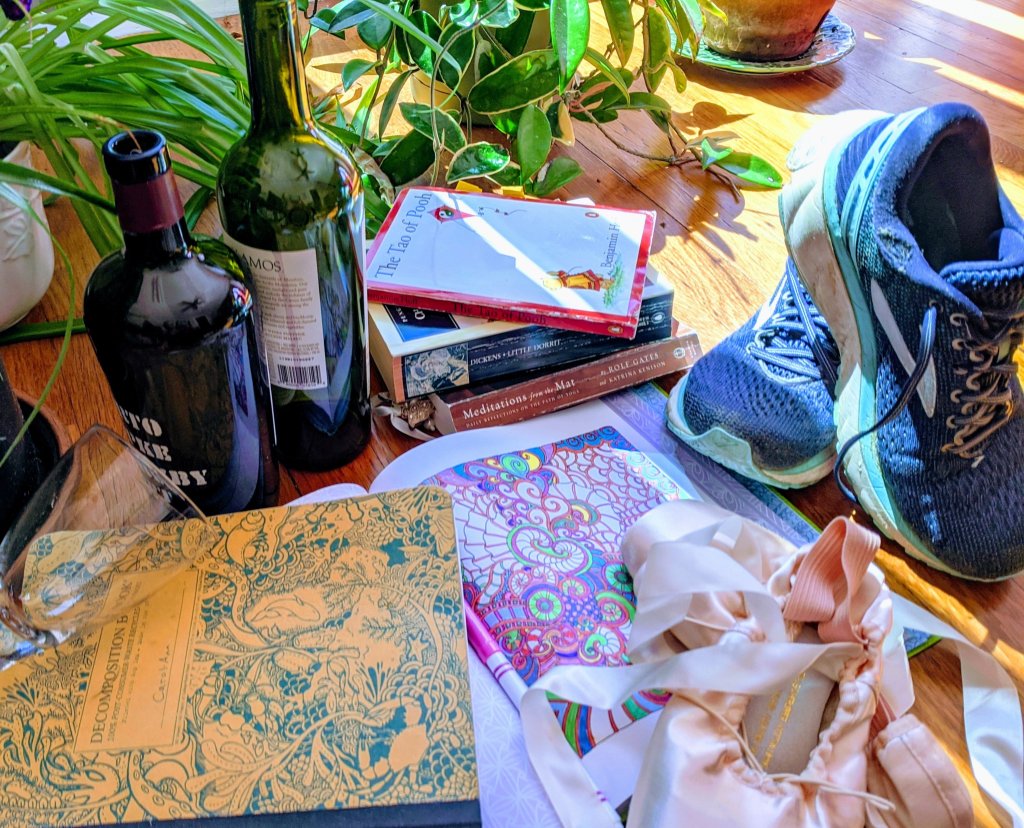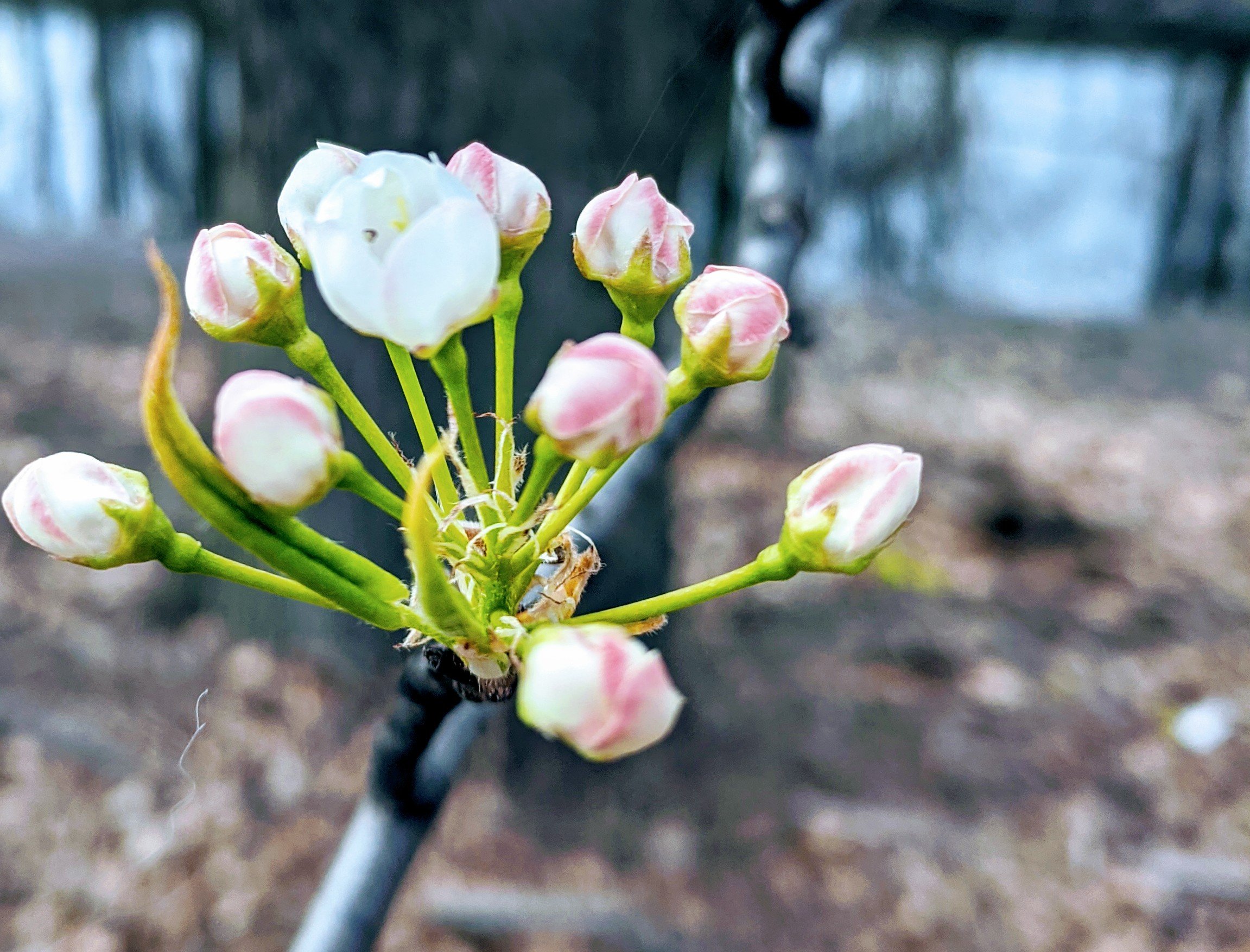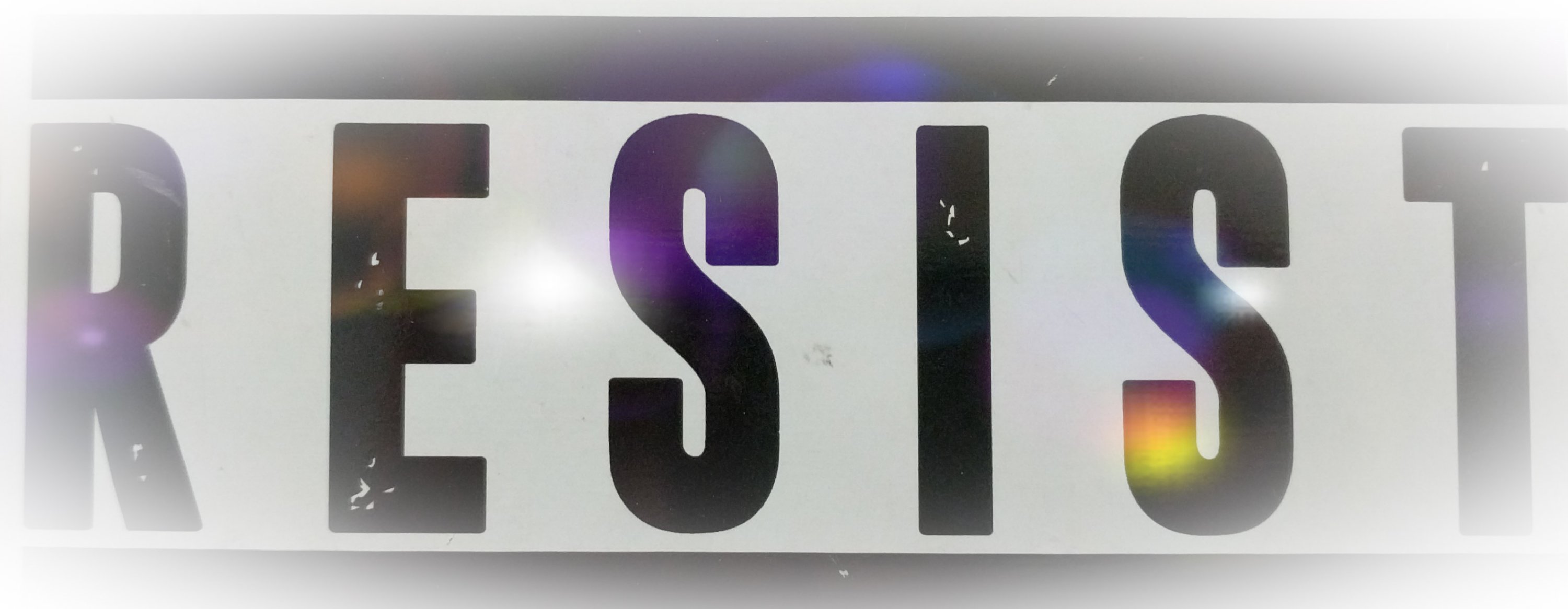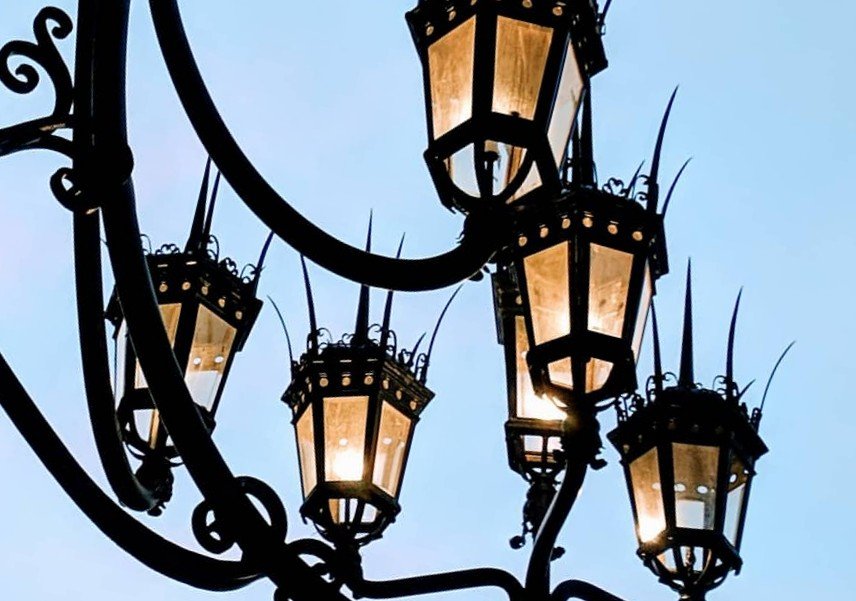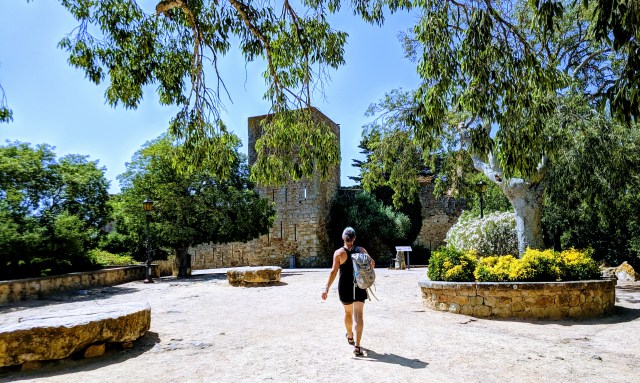
I have allowed myself to live this little life, when inside me there is so much more. And it’s all gone unused, and now never will be. Why do we get all this life if we don’t ever use it? Why do we get all these feelings and dreams and hopes, if we don’t ever use them? That’s where Shirley Valentine disappeared to: she got lost in all this unused life.
(Shirley Valentine)
This is my favorite story:
Once upon a time there was a housewife/mother/professional woman who got lost/got left behind/swapped houses/invested in a dilapidated villa/somehow conned an editor into paying for a stay in a charming village/neighborhood/ashram in the Caribbean/Greece/Italy/the English countryside/India/the Hollywood Hills. At first she felt lost/confused/abandoned/overwhelmed; but soon, with the help of quirky neighbors/gruff old timers/demanding teachers/hot resort employees/incomprehensible tradesmen, she found a home/a job/love/amazing sex/previously-untapped and unappreciated talents. She made a choice that was no choice at all: forever transformed by her experience, she turned her back on her old life. She became a beloved member of a new community, and, with the unexpected, but true love of her life, she lived there happily ever after.
We love a good escape story, one where our protagonist somehow, through a combination of some choice and a lot of accidents and coincidences, is torn from her regular, boring, thankless life and forced to start over somewhere better – immersed in better weather, better scenery, better food, and better people, our protagonist finds a better version of herself, one who is connected, appreciated, useful, loved, and (not incidentally) well-fed.
We know that the narrative of the transformative journey has ancient, archetypal roots: as Joseph Campbell describes, the hero’s journey is kind of everywhere in human storytelling. But the particular genre of escape story I’m talking about here is far removed from the epic quests of myth and legend. For one thing, they’re not about heroes – men who are born to be, or who become, great warriors or kings, whose worth is tested through crusades, odysseys, and fearsome battles fought for noble principles of freedom and honor.
Instead, what we like about contemporary escape stories is precisely that while they are struggles for freedom and honor, they’re not epic, not about heroes, and (the best ones) pointedly not about male experience. Virginia Woolf (who I’m betting would find Campbell a little tedious) lamented in A Room of One’s Own that Western culture has more than enough of those stories already – like, almost all of them. Instead, in an important sense, the woman-centered escape film is about eluding that male influence, of organizing one’s story not in reference to men – as protagonists or antagonists – but in relation to concerns and ambitions of one’s own.
So we relate to the protagonists of films like Shirley Valentine, the Holiday, Bread and Tulips, My Life in Ruins, Under the Tuscan Sun, and How Stella Got Her Groove Back, who are all quite ordinary women, living very recognizably-ordinary, contemporary lives, and feeling vaguely bored, trapped, and frustrated as a result. It’s gratifying to see a character like ourselves asserting her claim to be at the center of the story, taking some authorial control over the plot of her life. Like ourselves, our heroine is the good girl who has tried to make all the right decisions to conduct her career and relationships the way she (thinks) she ought to, in the naive hope that her efforts will be rewarded with a kind of fulfillment that will never come; who instead has become burned out by the roles she plays; who has put her dreams and desires on hold because to do otherwise would be irresponsible, and she’s nothing if not responsible; and who could never give herself permission to just put all the burdens down and walk away…until some nutty set of circumstances and people combine to make the decision for her.
And it’s all about those choices and decisions in regard to doing the “right” thing, “achieving,” being “successful” in career and relationships: the process of escaping calls those definitions of what’s “right” and “successful” into question. Confirming what we’ve suspected all along, wherever the protagonist ends up, she finds that all that she thought mattered a great deal, doesn’t matter much at all. She’s been living an empty life of draining effort spent in pursuit of superficial, empty rewards.
The story isn’t all that subversive – it’s not like the character ends up living off the grid in a polyamorous hippy commune somewhere. Wherever she ends up, she still works, makes money, has possessions – she still participates in capitalism. But it’s a vision of capitalism that is less cruel and cutthroat, where it’s easier to live simply, be less ambitious, have more free time, and yet still have enough material comforts, and, presumably, health care (no accident that our heroines often find their happy ending in European countries with a social safety net). She might have to work hard, but it’s invigorating rather than draining, because the work involves doing something that makes her happy, which she’s good at, which builds meaningful connections with others.
And she doesn’t throw off the constraints of heteronormative monogamy either – she generally (as far as I know, always) ends up with one person, not several, always a man – but she learns that the man to make her happy is not necessarily rich or prestigious, or all that stable, or even all that physically perfect; rather, he’s the man who gets her, who is interesting and interested; he’s not dependent on her, nor she on him; instead they can enjoy generously caring for one another.
So where do we fit into this story? What is it about the character’s escape that we relate to? I suppose you can watch Bread and Tulips or Leap Year or The Holiday and be gratified when the protagonist realizes that her husband or fiancé is boring and childishly needy, or boring and selfishly arrogant, thinking, with some smugness, “I’m so lucky my husband isn’t like that!” or “I’m glad I’m clever enough that I would never end up with a husband like that, and instead am destined for happiness with Jude Law or Matthew Goode cooking delightful omelettes for me, while our charming, improbably-articulate, impeccably-behaved children (who I have not had the discomfort of gestating) caper happily at our feet.” You could watch The Holiday, and when the haplessly-single protagonists find the loves of their lives, perhaps feel warm sympathy – and more smugness – thinking “I’m so lucky I have a husband – those poor, hapless single people!”
That is, what we enjoy in the story might all depend on where we’re at in our own lives – we might be watching with relief, grateful that our lives look more like what the protagonist escapes to rather than what she’s running from. Or we might watch with a certain amount of desperate hope, that if we’re not there yet, we’re on our way (“I want to go to there…”). Or we might watch in total denial, willing ourselves into the belief that we have escaped, that we have found the better, more wonderful life already.
(And speaking of Wonderful Lives, it’s interesting that we encounter all of these stories thanks to money-making ventures like book publishing, or the film industry – making money by selling us fantasies about not making money).
I think we tend to focus on how lovely the escape turns out to be, without thinking too hard about why it’s so lovely – because, if we really pay attention, what makes the ending gratifying is its contrast with where the character begins, trapped in a life that is ordinary, recognizable, profoundly unfulfilling, even – as the Netflix tagline might put it – soulless. Even if it is just a film, a fantasy, if we’re relating to the character, rooting for her as she finds her true self in her new, better Tuscan/Venetian/Irish/English/ Greek/French/Caribbean life, identifying with her in all the travails that she sloughs off like some metamorphosing cocoon… does that mean there’s something ever-so-slightly soulless about the lives that we’re living?
Obviously, one’s fantasies can have nothing to do with the “real” world at all, and be completely healthy, fun, diverting, without calling into question all of one’s life choices. It’s in the nature of fantasy that much of it is meant to be unattainable – we revel in being imaginatively immersed in the impossible or inadvisable, knowing that we’re never too far from the safety of the quotidian, the very mundanity of our lives giving fantasy its contrastive flavor.
These escape stories aren’t really all that unattainable – or shouldn’t be. Some of the details are a stretch, to be sure – current immigration law alone would put the kibosh on a lot of these fables of transplantation. But the character’s literal, geographical move is less important than what she leaves behind – her fear and her regret, her conditioning to put up with things that happen to her, her habit of enduring rather than deciding. Many of us aren’t in a position to make the literal move ourselves, but shouldn’t we be able to actually make the figurative moves in the lives we’re already living? Isn’t it important to question those life choices, which might not be choices as all so much as a series of acquiescences? If we suspect that the lives we’re living are making us worse, and not better – or worst of all, not making us anything— isn’t it almost an obligation to make a break for freedom?
There’s deep conditioning in many cultures to endure, to accept that ours is a world of suffering, that it’s vanity to believe that one deserves to be happy when so many others can’t be, that our ambition should be to radically accept where we are, rather than to be where we aren’t. There’s important wisdom in those edicts, along with the very important truth that, as just so many atoms in a vast and entropic universe, there’s very little in our lives that we have real control over (….not to mention that the ideologies which govern our lives – money, class, religion, power – all rely on our patient, compliant, endurance). It’s hard to recognize a chance for escape when we see it, harder still to take that chance (what about your health insurance? what about your retirement? what about that committee meeting next week?).
Surely it would be best to seek contentment with what we have.
That’s what we tell ourselves, as though the harder, more noble choice is always to endure. Escape, running away, that’s taking the easy (immature, irresponsible) way out, and nobody would want that.
Except we keep asking for and telling that escape story, over and over, obsessively, as though touristic voyeurism can be fulfillment enough, at least for now, at least until.…
In the meantime, we’re just waiting.
And you may ask yourself
What is that beautiful house?
And you may ask yourself
Where does that highway go to?
And you may ask yourself
Am I right? Am I wrong?
And you may say yourself, “My God! What have I done?”
(Talking Heads, “Once in a Lifetime”)


